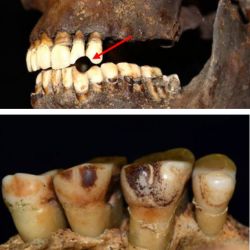-
Study
-
Quick Links
- Course Search
- Fees and Funding
- Unlock Your Potential
- Still time to Apply
- Higher and Degree Apprenticeships
- Continuing Professional Development
- Still time to apply
-
Undergraduate
- UCAS Clearing & Confirmation 2025
- Application Guides
- UCAS Exhibitions
- Foundation Years
- School & College Outreach
- Information for Parents
-
Postgraduate
- Application Guide
- Postgraduate Research Degrees
- Flexible Learning
- Change Direction
- Register your Interest
-
-
International
International
Northumbria’s global footprint touches every continent across the world, through our global partnerships across 17 institutions in 10 countries, to our 277,000 strong alumni community and 150 recruitment partners – we prepare our students for the challenges of tomorrow. Discover more about how to join Northumbria’s global family or our partnerships.
View our Global Footprint-
Quick Links
- Course Search
- Undergraduate Study
- Postgraduate Study
- Information for Parents
- London Campus
- Northumbria Pathway
- Cost of Living
- Sign up for Information
-
International Students
- Information for Students
- International Events
- Application Guide
- Entry Requirements and Education Country Agents
- Global Offices
- English Requirements
- English Language Centre
- International student support
- Cost of Living
-
International Fees and Funding
- International Undergraduate Fees
- International Undergraduate Funding
- International Masters Fees
- International Masters Funding
- International Postgraduate Research Fees
- International Postgraduate Research Funding
-
International Partners
- Agent and Representatives Network
- Global Partnerships
- Global Community
-
International Mobility
- Information for Northumbria Students
- Information for Incoming Exchange Students
-
-
Business
Business
The world is changing faster than ever before. The future is there to be won by organisations who find ways to turn today's possibilities into tomorrows competitive edge. In a connected world, collaboration can be the key to success.
More on our Business Services -
Research
Research
Northumbria is a research-rich, business-focused, professional university with a global reputation for academic quality. We conduct ground-breaking research that is responsive to the science & technology, health & well being, economic and social and arts & cultural needs for the communities
Discover more about our Research-
Quick Links
- Research Peaks of Excellence
- Academic Departments
- Research Staff
- Postgraduate Research Studentships
- Research Events
-
Research at Northumbria
- Interdisciplinary Research Themes
- Research Impact
- REF
- Partners and Collaborators
-
Support for Researchers
- Research and Innovation Services Staff
- Researcher Development and Training
- Research Ethics and Integrity
- University Library - Open Access
- Vice Chancellors Fellows
-
Research Degrees
- Postgraduate Research Overview
- Doctoral Training Partnerships and Centres
- Academic Departments
-
Research Culture
- Research Culture
- Research Culture Action Plan
- Concordats and Commitments
-
-
About Us
-
About Northumbria
- Our Strategy
- Our Staff
- Place and Partnerships
- Leadership & Governance
- Academic Departments
- University Services
- History of Northumbria
- Contact us
- Online Shop
-
-
Alumni
Alumni
Northumbria University is renowned for the calibre of its business-ready graduates. Our alumni network has over 246,000 graduates based in 178 countries worldwide in a range of sectors, our alumni are making a real impact on the world.
Our Alumni - Work For Us
What will I learn on this module?
This module aims to build on your learning from the Year 1 “Academic Skills and Critical Reflection” module (SW0422). It aims to support you to move from being able to locate and make an initial critical appraisal of knowledge towards a deeper understanding of knowledge construction by way of understanding the social work research process, and alongside this, further developing your ability to appraise the quality of different forms of evidence. The curriculum will therefore focus on research methodologies and different elements of the research process. This is with a view to supporting your ability to inform your future practice with high quality and up-to-date evidence, and engage in effective life long learning. The assignments will invite you to explore and critically appraise research based knowledge in an area of your interest relevant to social work practice.
How will I learn on this module?
You will learn through lectures, seminar tutors or student-led seminars, peer group and collaborative learning, independent and self-directed study and library based work.
We will identify a range of tasks for you to complete week to week. Sometimes these are learning activities to bring with you for the next seminar, sometimes learning to undertake for the next session. These are focussed tasks aimed to help you to work towards the summative task for this module.
How will I be supported academically on this module?
You will be supported in a variety of ways during the lectures and seminars. These will include feedback from tutors and peer groups during the lectures and seminars. In addition, the module leader and seminar tutors will respond to questions, preferably via the module’s discussion board at the University’s eLearning Portal so that the whole group can benefit.
What will I be expected to read on this module?
All modules at Northumbria include a range of reading materials that students are expected to engage with. Online reading lists (provided after enrolment) give you access to your reading material for your modules. The Library works in partnership with your module tutors to ensure you have access to the material that you need.
What will I be expected to achieve?
Knowledge & Understanding:
• Demonstrate an understanding of key issues in research and knowledge generation, including the ethical obligations of the researcher
• Describe and explore the current state of knowledge about a relevant topic
Intellectual / Professional skills & abilities:
• Prepare to make decisions through the identification and gathering of information from more than one source and, with support, question the reliability and validity of this information
• Consider how evidence may be used to inform judgement and decisions in practice situations
Personal Values Attributes (Global / Cultural awareness, Ethics, Curiosity) (PVA):
• Recognise the importance of applying imagination, creativity and curiosity to practice
How will I be assessed?
Summative assessment
1500-word research proposal (research project). The proposal could be for a quantitative, qualitative or mixed-methods project. The topic of your project should be suitable both in scale and relevance to a newly qualified social work practitioner and researcher. A suggested structure for the proposal will be outlined.
Formative assessment
Your formative assessment is a verbal presentation of your research proposal to the rest of your seminar group and tutor. You will receive verbal feedback from your peers and your tutor which will help your preparations for your summative assessment.
Pre-requisite(s)
SW0417, SW0418, SW0419, SW0420, SW0421, SW0422
Co-requisite(s)
SW0514, SW0515, SW0516, SW0517
Module abstract
This module builds on learning from the Year 1 ‘Academic Skills and Critical Reflection’ module, towards a deeper understanding of knowledge construction by way of understanding the research process, and alongside this, further developing your ability to appraise the quality of different forms of evidence. The curriculum will therefore focus on research methodologies and different elements of the social work research process. The module tutors and research expert guest lecturers will share with you their experiences of doing research and will help you gain the skills and motivation for you to start to “think as a researcher”. The assignments will invite you to design a research project on a topic of your interest suitable both in scale and relevance to a newly qualified social work practitioner and researcher, with the potential of being realised in your future employment or academic pathways.
Course info
UCAS Code L502
Credits 20
Level of Study Undergraduate
Mode of Study 3 years Full Time
Department Social Work, Education and Community Wellbeing
Location Coach Lane Campus, Northumbria University
City Newcastle
All information is accurate at the time of sharing.
Full time Courses are primarily delivered via on-campus face to face learning but could include elements of online learning. Most courses run as planned and as promoted on our website and via our marketing materials, but if there are any substantial changes (as determined by the Competition and Markets Authority) to a course or there is the potential that course may be withdrawn, we will notify all affected applicants as soon as possible with advice and guidance regarding their options. It is also important to be aware that optional modules listed on course pages may be subject to change depending on uptake numbers each year.
Contact time is subject to increase or decrease in line with possible restrictions imposed by the government or the University in the interest of maintaining the health and safety and wellbeing of students, staff, and visitors if this is deemed necessary in future.
Useful Links
Find out about our distinctive approach at
www.northumbria.ac.uk/exp
Admissions Terms and Conditions
northumbria.ac.uk/terms
Fees and Funding
northumbria.ac.uk/fees
Admissions Policy
northumbria.ac.uk/adpolicy
Admissions Complaints Policy
northumbria.ac.uk/complaints









